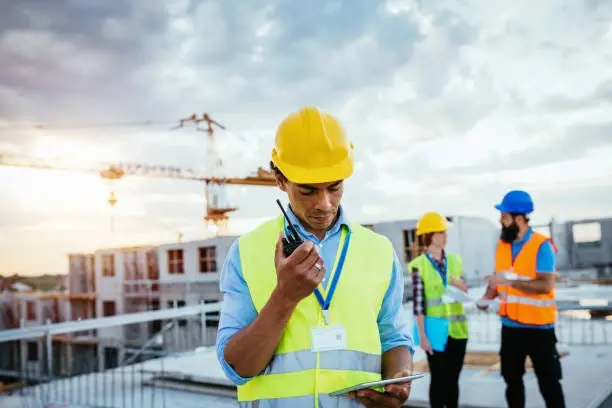Commercial construction is a multifaceted industry that plays a critical role in shaping the business landscape. From erecting new buildings to renovating existing spaces, commercial construction services encompass a wide range of activities. This article explores the various aspects of commercial construction services, delving into the different types of projects, the stages of construction, and the key factors that contribute to the successful completion of a project.
Understanding the Scope of Commercial Construction
Commercial construction projects vary widely in scope and size. These projects can range from small-scale renovations of existing commercial spaces to the construction of large buildings from the ground up. The common thread among these projects is their commercial nature, which includes office buildings, retail centers, warehouses, and manufacturing facilities. Each of these types of projects has unique requirements and challenges, necessitating a tailored approach from construction services. Ensure your space meets the ADA requirements for accessibility and inclusivity with our expert guidance and solutions.
Diverse Project Types within Commercial Construction
The variety in commercial construction projects is vast. Small projects might involve refurbishing a retail space or upgrading an office building’s interior. Larger projects, on the other hand, can include constructing a multi-story office complex or developing an industrial park. The complexity of these projects varies, and so does the expertise required to successfully complete them. Considering all factors, is making a second-story addition worth it?
The Stages of a Commercial Construction Project
Let’s explore the different stages of each construction project:
Initial Planning and Design
The first stage in any commercial construction project is planning and design. This phase involves detailed discussions between the client and the construction service provider to outline the project’s scope, goals, and requirements. Architects and engineers play a critical role at this stage, creating detailed plans and designs that will guide the rest of the project. This phase is crucial as it sets the foundation for the entire project.
Obtaining Permits and Approvals
Before construction can commence, it is essential to obtain the necessary permits and approvals from local authorities. This step ensures that the project complies with all relevant codes and regulations. The process can be complex and time-consuming, requiring detailed knowledge of local laws and regulations.
Construction Phase
The construction phase is where the plans come to life. It involves a range of activities, from site preparation and foundation work to the construction of the structure and the installation of electrical and plumbing systems. This phase requires meticulous coordination among various professionals, including construction workers, project managers, architects, and engineers, to ensure that the project progresses smoothly and stays on schedule.
Finishing Touches and Final Inspection
Once the main construction work is complete, the project moves into the finishing phase. This stage involves installing flooring, painting, and completing other aesthetic and functional elements of the building. The final inspection is conducted to ensure that the project meets all the necessary standards and requirements.
Key Considerations in Commercial Construction
Some of the most important considerations in commercial construction include:
Budget Management
One of the critical aspects of commercial construction is budget management. Projects must be carefully planned to stay within financial constraints while meeting quality standards. Effective budget management involves regular monitoring of expenses, making adjustments as needed, and transparent communication with all stakeholders.
Quality Assurance
Maintaining high-quality standards is essential in commercial construction. This not only involves the use of quality materials but also ensuring that the workmanship meets industry standards. Regular quality checks and adherence to best practices are vital to achieving a successful outcome.
Timely Completion
Another crucial factor is the timely completion of the project. Delays can have significant financial implications and affect the overall success of the project. Efficient project management, including effective scheduling, resource allocation, and proactive problem-solving, is key to maintaining timelines.
The Role of Technology in Commercial Construction
The use of technology in commercial construction has transformed the way projects are planned, managed, and executed. From Building Information Modeling (BIM) to advanced project management software, technology has made the construction process more efficient and precise.
Sustainability and Green Building Practices
Sustainability is becoming increasingly important in commercial construction. Green building practices not only benefit the environment but can also lead to cost savings and improved public perception. Sustainable construction involves the use of eco-friendly materials, energy-efficient designs, and waste reduction strategies.
Commercial construction services encompass a broad spectrum of activities, each with its own set of challenges and requirements. Understanding the stages of construction, managing budgets and quality, and leveraging technology are all essential to the successful completion of commercial construction projects. As the industry continues to evolve, those who can adapt and embrace new practices and technologies will lead the way in shaping the commercial landscapes of the future.










Hello!! My name is Annabella
I love to eat, travel, and eat some more! I am married to the man of my dreams and have a beautiful little girl whose smiles can brighten anyone’s day!